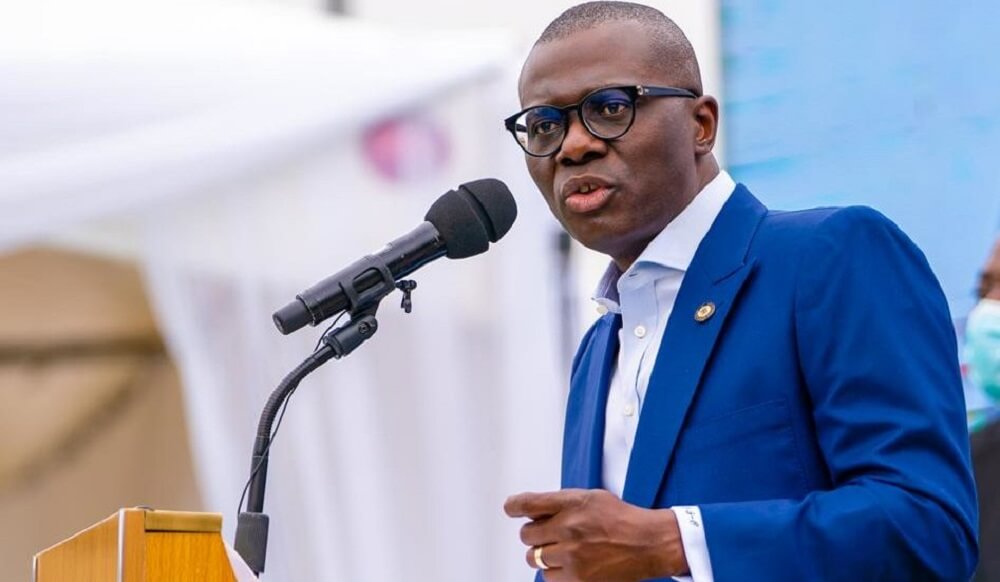The Lagos State government, on Wednesday, launched a circular economy hotspot in the state.
Circular economy is based on regeneration of products for continuing production in a sustainable and environmentally-friendly manner.
Advertisement
In other words, it is a model of production and consumption, which extends the lifecycle of products.
Governor Babajide Sanwo-Olu unveiled the initiative at a conference organised by the state government in collaboration with Circular Economy Innovation Partnership (CEIP) and African Circular Economy Network.
According to Sanwo-Olu, circular economy would proffer a programmatic approach to addressing global economic crises occasioned by pollution, climate change and loss of biodiversity.
He explained that Lagos made the move in championing the initiative to create new wealth for the youths in Small and Medium Enterprises (SMEs), while also generating more jobs, as additional innovative production ideas and extra manpower would be required to keep the regenerated materials in the loop for a long time.
Advertisement
“The Circular Economy Hotspot 2023 is of utmost importance, not only for Lagos and Nigeria, but for the entire sub-Saharan Africa. This speaks to my administration’s core principle of encouraging citizens engagements and partnerships in our bid to sustain a resilient socio-economic development for Lagos. Developing countries like ours, which have contributed the least to global warming, are facing the worst impacts of climate change. We are also at a disadvantage in accessing resources and strategies needed to fight climate change and adapt to its impact.
“To save the future generations of resource scarcity, efforts must be committed to ensuring that resources are reused again in order to minimise waste. Our linear approach to delivering public goods and services is being re-evaluated and the principles of Circular Economy shall be adopted fully. In a city like Lagos, we believe that this initiative will create more jobs, because additional innovative production ideas will be needed and extra manpower required to keep materials in the loop for a long time,” the governor said.
The state’s journey to circular economy began three years ago when the government brought stakeholders together on a roundtable to discuss options towards a resourceful and waste-free economy. A technical working group on “Circular Lagos” was set up in 2021 to co-ordinate and facilitate the development of the initiative, while supporting and monitoring project implementation.
“This event is coming at no better time, especially as the nation continues the process to free up its limited resources and optimally channel it towards addressing the different socio-economic needs of the citizens. The commercial activities that abound in Lagos, along with its major link to international businesses, has made the State a beacon of prosperity, attracting a constant influx of people which translates to a growth in population.
“The attendant pressure on our limited resources therefore requires a deliberate shift from materialisation to de-materialisation. We believe that it is by these indices and more that Lagos will be adjudged for compliance with Sustainable Development Goals (SDGs) 8, 9 and 12 on promotion of inclusive growth and building a resilient infrastructure,” Sanwo-Olu said.
Advertisement
Also speaking at the event, CEIP co-chairman, Bolaji Akinboro, said the concept of circular economy would allow the state to construct a new cycle of material use and save the future generations from scarcity.
“Adoption of a circular economy will lay the foundation for big businesses operating in Lagos to key into the new economic trend,” Akinboro said.
Consular General of the Kingdom of Netherlands, Michael Deelen, observed that the climate change had been projected to become more severe and would hit a point where the planet’s ecosystem would no longer replenish the resources being used up.
“With 70 percent of Nigeria’s population under the age of 30, the possibility of climate change tainting their future is exponentially higher. This simply means there will be more people living with more scarcity in the future from the scarcity we are creating today.
“It makes sense to replace the current linear model of grab, use and dump to a circular model of feeding recycled materials back into the system. The Netherlands is willing to provide the knowledge and capacity needed to build the circular economic model,” the envoy who was represented by Deputy Consular General, Ms. Leone Van der Stijl, said.



